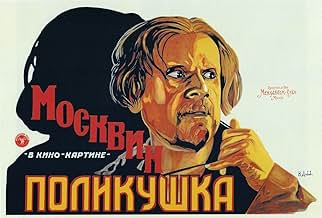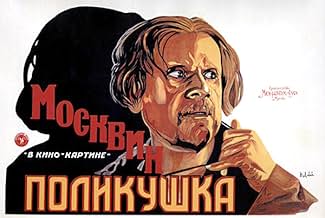Herr Polikushka is a poor Russian servant with a huge family and a special fondness for vodka, that is to say, a Bolshevist paradigm; He works for a noblewoman who, after so many problems with him in the estate (ah, the eternal problems with the servants; Russia is no different from Germany in that respect ), decides to put him to a test: She entrusts him to go to a certain merchant in the next town and collect- MEIN GOTT!!- a very important sum of money!.
"Polikushka" was the only film directed by Herr Aleksandr Sanin, one of Moscow Art Academic Theatre's founders, and is based on Herr Lev Tolstoy's homonym short story. In spite the many differences between the literary oeuvre and its film adaptation ( Tolstoy's short story includes valuable social aspects about Polikushka's background that help to comprehend and understand his actions ) it is a remarkable work that is outstanding for its depiction of the cruel realities of Russian society -the harsh life condition of its main character and his family in contrast to the wealth of his mistress; the daily life at the marketplace or the outcasts in their lodgings. Thus in addition to its artistic merit, the film has the opportunity to denounce injustices and the submission of the lower classes.
The film as the story leaves no room for hope, redemption or a glimpse of a better future life for Polikushka, although the film includes at the end a slight chance of revenge for its main character. Still, Polikushka is condemned to a life of endless misery. Remarkable is Herr Ivan Moskvin performance as Polikushka; he plays that innocent servant and his particular fall to hell with total conviction, sharing his miseries with the audience in every scene. Probably, the fact that Herr Moskvin was a Herr Stanislavsky follower helped him to get into his character so successfully.
In spite the many difficulties that the crew suffered during the filming, ( shooting during winter in Russia with scarce resources is a terrible thing even for people who are long used to it ) "Polikushka" had international success and was considered as one of the most important films of that year, a fair reward for a film that implicitly offers the audience the most classical and artistic virtues of the genuine Russian culture.
And now, if you'll allow me, I must temporarily take my leave because this German Count must talk with that Russian mistress about the best Teutonic way to deal with the servants.
Herr Graf Ferdinand Von Galitzien http://ferdinandvongalitzien.blogspot.com/






